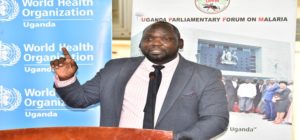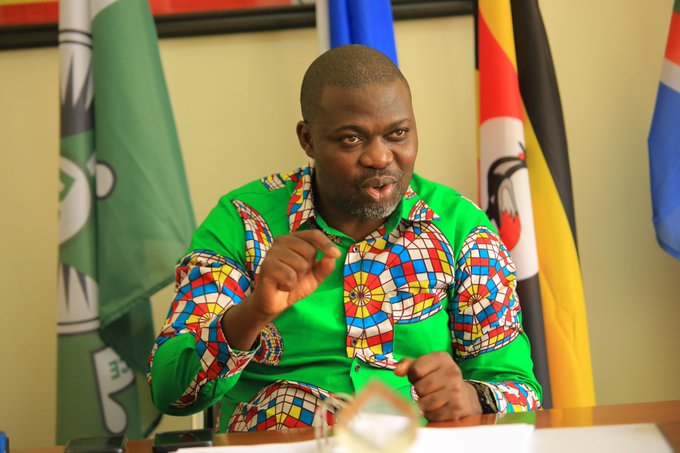HEALTH: The Deputy Speaker of Parliament, Rt. Hon. Thomas Tayebwa has said that policy makers and politicians are one of the biggest drivers who will fight to eliminate malaria in Uganda.
Tayebwa who is also the patron of the Uganda Parliamentary Forum on Malaria made these remarks at a National Dialogue on malaria at Parliament on Wednesday, 03 May 2023.
Tayebwa said that Uganda is ranked number three in contributing to the highest rate of malaria cases after Nigeria and Democratic Republic of Congo in sub-Saharan Africa.
He added that the fight against malaria cannot be on Parliament alone if mass sensitization of people in areas with high malaria prevalence is to be successful.

He expressed concern over malaria funding as established from the statistics where the Government of Uganda was only contributing to two per cent of the overall budget.
“How many of you here are in the Budget Committee and have taken advantage during appropriation since the Minister of Health does not sit in that committee?” he asked adding that, ’see the disparity in funding for a disease that wrecks our health system year in year out. Its worrying’.
The current budget appropriation from Parliament is US$6 mmillion, US219 mmillion from the Global Fund and US$264 million from partners.
Tayebwa also cautioned members who are causing political interference in technical matters and asked them to respect science, which he says provides all the necessary tools for more research work on malaria prevention and elimination.
The Chairperson of the Forum, Hon. Timothy Batuwa expressed his gratitude to the MPs for their unwavering support in the fight against Malaria.

He asked them to routinely follow up on how their districts are utilizing what is allocated to them and appreciated the Malaria Consortium amongst others partners for their consistent extension of financial support in the fight against malaria.
Dr. Charles Katureebe who represented the World Health Organization emphasized the need for community systems of owning the fight against malaria.
He said that mass action approach against malaria and political commitment from national to village levels is the way to eliminate malaria in Uganda.
The Ministry of Health in the Vision 2030 for a malaria-free Uganda expects 25 per cent reduction by 2025 and 75 per cent reduction by 2025.
According to the World Health Organization, factors which help in eliminating malaria include, political commitment through appropriation, sustained funding to the health sector, and inclusive health systems by strengthening surveillance.
Credit: Parliament of Uganda
cemtralupdates31@gmail.com





